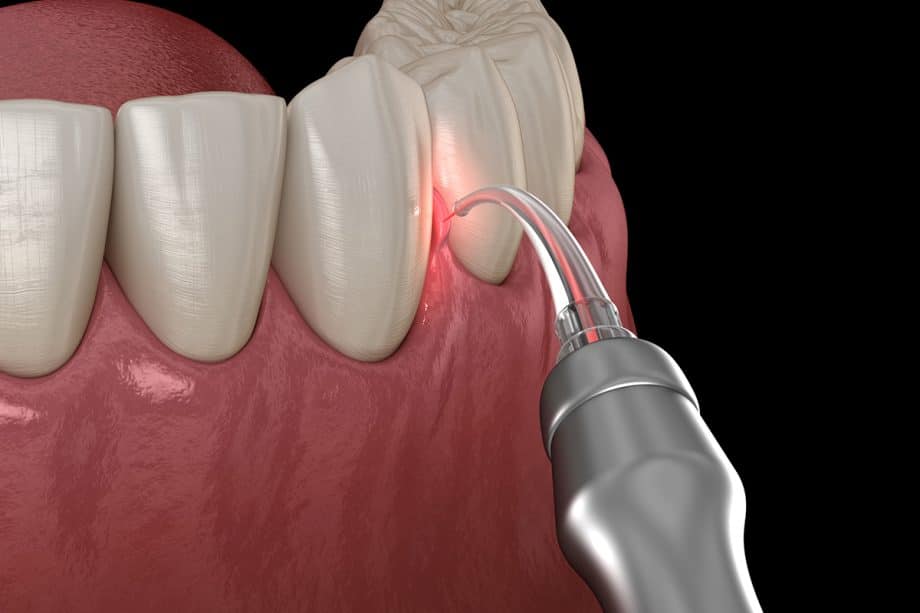As parents, we want nothing more than to see our babies thrive—feeding well, growing strong, and feeling comfortable in every stage of development. But sometimes, small physical barriers can create big challenges. One example is a tongue-tie or lip-tie, where the tissue under the tongue or upper lip is too tight, restricting natural movement.
At Dream Smiles Pediatric Dentistry of Gaithersburg, we often meet parents who have struggled to find answers to why their baby is having difficulty feeding, gaining weight, or settling comfortably. A laser frenectomy can be a gentle, effective solution for many of these challenges. In this blog, we’ll share five common signs that your baby might benefit from this treatment, so you can feel more confident in seeking the right care for your little one.
1. Difficulty With Breastfeeding
One of the most common reasons families consider a frenectomy is breastfeeding difficulty. Babies with tongue-tie or lip-tie often cannot latch properly, which makes feeding frustrating for both the baby and the parent. You may notice your baby frequently breaking suction, making clicking noises while nursing, or seeming unsettled at the breast.
For mothers, this can mean painful nipples, frequent clogged ducts, or even mastitis. Over time, poor latching can also reduce milk supply. If feeding feels like a constant struggle despite trying different positions and getting lactation support, it may be time to explore whether a frenectomy could help.
2. Poor Weight Gain or Slow Growth
When a baby can’t latch effectively, they often don’t get enough milk. This can lead to slow weight gain or difficulty reaching developmental milestones. Parents may notice their baby feeding for long stretches but still seeming hungry, or wanting to nurse constantly without being satisfied.
Pediatricians sometimes recommend supplementing with bottles, but if the underlying issue is a tongue-tie or lip-tie, addressing it directly may be more effective. A laser frenectomy can release the restricted tissue, allowing your baby to feed more efficiently and take in the nutrition they need to grow.
3. Excessive Gassiness or Colic-Like Symptoms
Does your baby seem unusually gassy or fussy after feeding? Babies with tongue- or lip-ties often swallow extra air during feedings because of an improper latch. This trapped air can cause bloating, discomfort, and prolonged crying spells that resemble colic.
While many babies experience some gassiness, persistent or severe symptoms can be a sign of an underlying issue. Parents who notice frequent burping, hiccups, or long stretches of crying after meals may want to discuss a possible frenectomy with their pediatric dentist. Once the restriction is released, many babies show immediate improvement in comfort and feeding.
4. Difficulty Transitioning to Bottle Feeding or Solids
Tongue-ties and lip-ties don’t just affect breastfeeding—they can also create challenges as your baby grows. Some babies struggle to transition from breast to bottle, dribbling milk, coughing, or refusing bottles altogether. Later, when solids are introduced, a restricted tongue can make it hard to move food around the mouth or swallow comfortably.
If mealtimes are becoming a source of frustration for both you and your child, a frenectomy may help remove the barrier to smoother feeding. Early treatment can make the shift to solids less stressful and help establish healthy eating habits from the start.
5. Speech Concerns and Developmental Delays
While feeding issues are usually the first sign of a tongue- or lip-tie, untreated restrictions can also affect speech development as your child grows. The tongue plays a critical role in forming sounds, and limited mobility may lead to delayed speech or difficulty pronouncing certain words.
Not all children with ties experience speech issues, but many families choose to address them early to avoid potential developmental delays. By releasing the restricted tissue, a laser frenectomy provides your child with greater freedom of movement, making it easier to develop clear and confident speech.
Helping Your Baby Thrive
Every baby is different, and not all feeding or speech concerns are related to tongue- or lip-ties. That’s why it’s important to consult with a trusted pediatric dentist who can evaluate your child’s oral structures and recommend the right course of action.
At Dream Smiles Pediatric Dentistry of Gaithersburg, we use advanced laser technology for frenectomies. This method is precise, safe, and minimizes discomfort, often allowing babies to feed more effectively right after the procedure. For parents who have struggled with endless feedings, tears, and worry, the results can feel life-changing.
If you notice any of these five signs in your baby, know that you’re not alone—and that there are gentle solutions to help your child thrive.
Frequently Asked Questions About Laser Frenectomy
Is a laser frenectomy safe for my baby?
Yes, laser frenectomy is considered very safe. The laser allows for a precise release of the tissue with minimal bleeding and discomfort. Babies often feed immediately after the procedure, and healing is typically quick.
How do I know if my baby really needs a frenectomy?
Not every feeding or speech issue is caused by a tongue-tie or lip-tie. The best way to know is to have your baby evaluated by a pediatric dentist experienced in diagnosing ties. They can determine whether the restriction is significant enough to benefit from treatment.
At Dream Smiles Pediatric Dentistry of Gaithersburg, we are passionate about helping children thrive from their very first smiles. Our compassionate team offers gentle, advanced care for infants, children, and teens. If you think your baby may benefit from a frenectomy, contact us today to schedule an evaluation.

